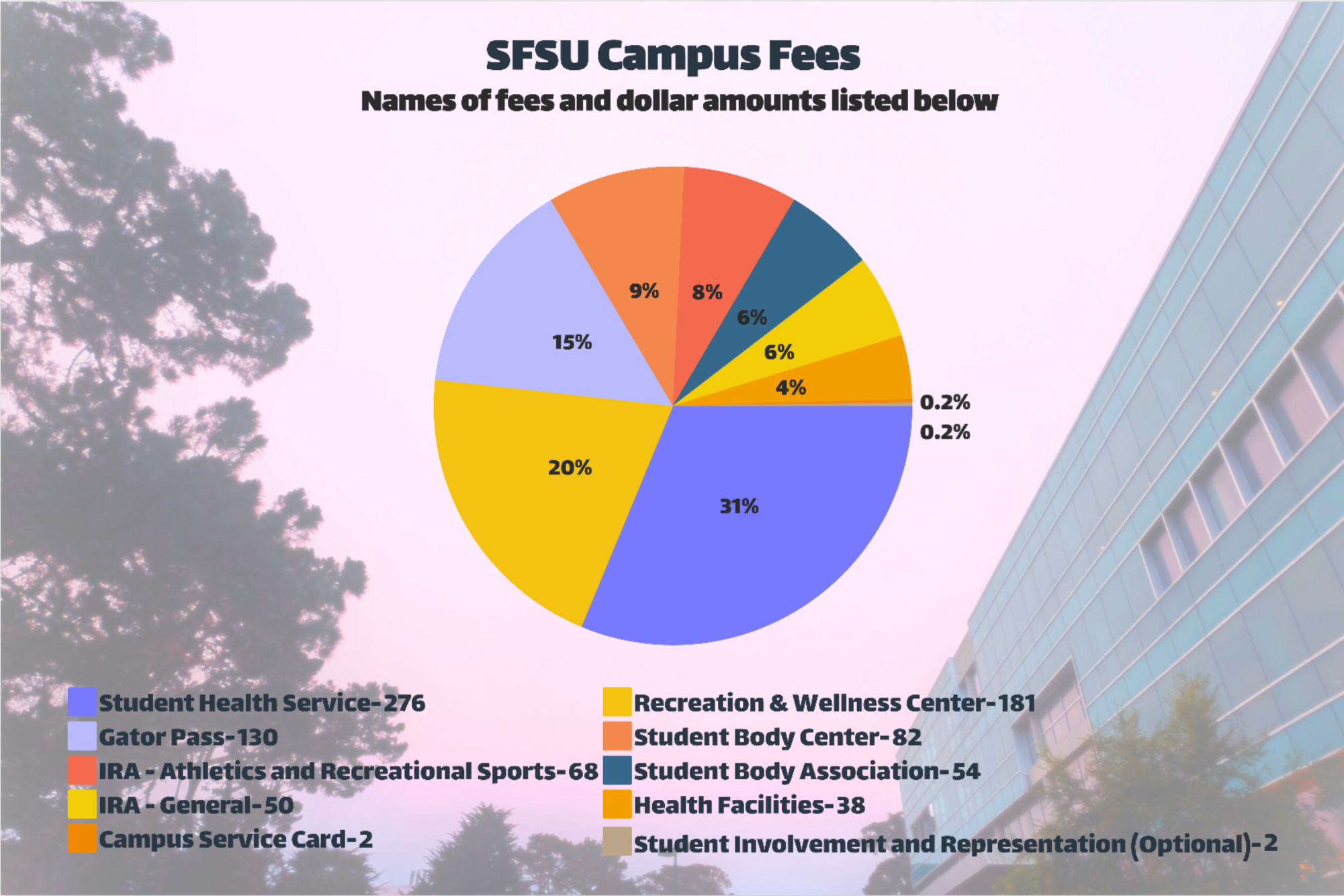
$3,925 in tuition and fees were charged to most full-time undergraduate students at San Francisco State University this semester. Of that, $3,042 was tuition and $883 was campus fees. That’s $281 more than in Spring 2024.
Why has tuition gone up and by how much?
In Fall 2023, the California State University Board of Trustees voted to implement a yearly tuition increase of 6% for five years. This is the first academic year that it comes into effect.
According to the SFSU Bursar’s Office, undergraduate students enrolled in over six units pay $3,042 this semester — up from $2,871 in spring. Those enrolled in six units or under will pay $1,764 this semester — from $1,665 in spring.
Credential students enrolled in more than six units pay $3,531 ($3,330 in spring) and those enrolled in six units or fewer pay $2,049 ($1,932 in spring) this semester.
Graduate, post-baccalaureate, second degree, and master’s degree students pay $2,208 (spring: $2,082) if they’re enrolled in six or fewer units and $3,804 (spring: $3,588) for more than six units.
The Education Doctorate program costs $6,273 per semester, up from $5,919 in spring.
What else increased as a result of the tuition increase proposal passing?
The proposal also included raising the fees for out-of-state and international students. In the spring, those students paid $396 per unit.
This semester, students are paying $420 per unit. The increase of $24 per unit adds up to $360 more for an undergraduate student enrolled in the recommended 15 units per semester.
Which campus fees were increased?

Campus fees were also increased this semester, from $773 in total last semester to $883 this semester.
From when the Gator Pass was implemented in 2017 to the 2022-2023 academic year, each student was charged $180 per semester. The Gator Pass fee last fall was $40, according to the Bursar’s Office. Students voted to increase the fee to $130 to expand the pass to all public transit systems that accept Clipper.
Other fees that were increased include the Student Health Service fee ($261 to $276), the Recreation & Wellness Center fee that funds Mashouf Wellness Center (from $178 to $181), and the Health Facilities Fee ($36 to $38).
“Those fees were approved by the Student Fee Advisory Committee and University President with an automatic annual increase to cover inflationary costs,” said SFSU Media Relations Specialist Kent Bravo.
Which fees have stayed the same?
The Student Involvement and Representation Fee of $2 pays for the California State Students Association, an organization representing CSU students system-wide. This fee didn’t increase.
The Campus Service Card fee ($2), pays for issuing OneCards and its operations.
Two other fees are the Student Body Center fee ($82) and Student Body Association fee ($54).
“The Student Body Center fee pays for the facilities and operations of our Cesar Chavez Student Center,” said Brandon Foley, President of the Associated Students Board of Directors. “[The Student Body Association Fee] is the second fee that pays for the Student Center, Associated Students Programs, Associated Students Board of Directors — basically everything in the Cesar Chavez Student Center besides facilities and operations.”
The AS budget for the 2024 to 2025 academic year is around $11 million, according to Foley. The majority of that comes from those two fees, but that number also includes grant funding.
The Instructionally-Related Activities (IRA) fees have also remained the same. The IRA – General fee is $50 and the IRA – Athletics and Recreational Sports fee is $68. According to previous coverage by Golden Gate Xpress, these fees help cover the cost of running the library, extracurricular projects and sports teams.
Graduate students in the College of Business are paying a professional program fee of $285 per unit. In addition, they are paying off-campus fees depending if they’re enrolled in six or under units ($700) or over six units ($1200) to fund the Downtown Campus.
Graduate students in the Master of Public Administration program are paying program fees depending if they’re enrolled in six or under units ($430) or over six units ($850).
Can tuition and fees be waived?
For most students, the Student Involvement and Representation Fee of $2 is the only waivable fee, according to the Bursar’s Office.
CSU employees and their dependents and spouses may have their fees waived and their tuition reduced under a CSU program.
Veterans may have their tuition and fees waived. Their children may qualify, depending on guidelines established on the CalVet website.







